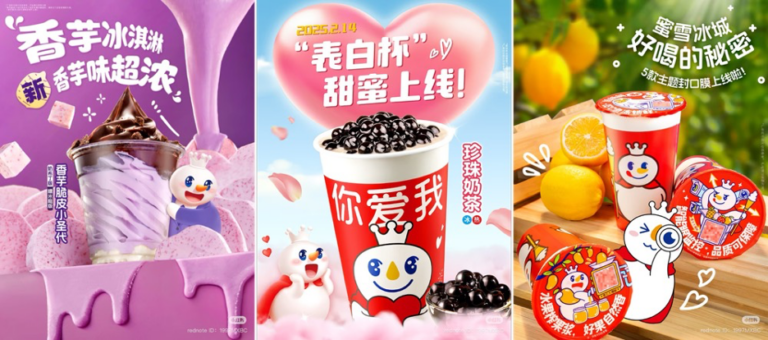As early as 1987, KFC entered the Chinese market and rapidly expanded. As of December 2021, KFC in China holds over 8,100 outlets across 1,600 cities. To attract Chinese consumers and cater to the Chinese taste, Kentucky Fried Chicken has glocalized its menus in China- offering not only its signature fried chicken, but traditional Chinese options such as congee, rice rolls, and even dim sum like steamed dumplings. This strategy is well received by Chinese consumers, proven by its leading market share of about 13.5% in China’s Quick Service Restaurant (QSR) market. The US chain is positioned as a Western fast-food brand with Chinese characteristics, targeting consumers from all income levels in the country.
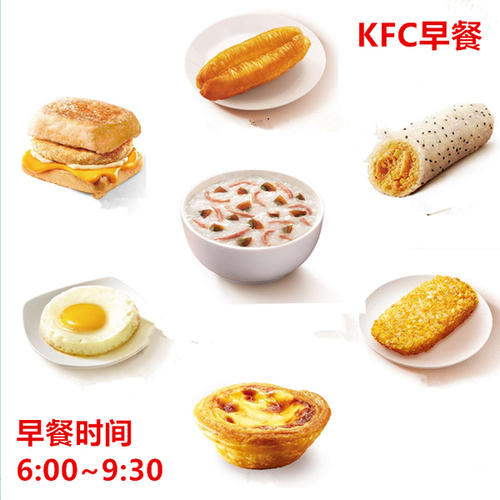
However, perhaps surprisingly, according to a recent survey by Daxue Consulting that asked 1,000 Chinese consumers which food and beverage brands they think are environmentally friendly, many responded to fast food businesses. Among them, KFC gained the most mentions, at 9.2% versus 7% for McDonald’s and 3.5% for Starbucks.
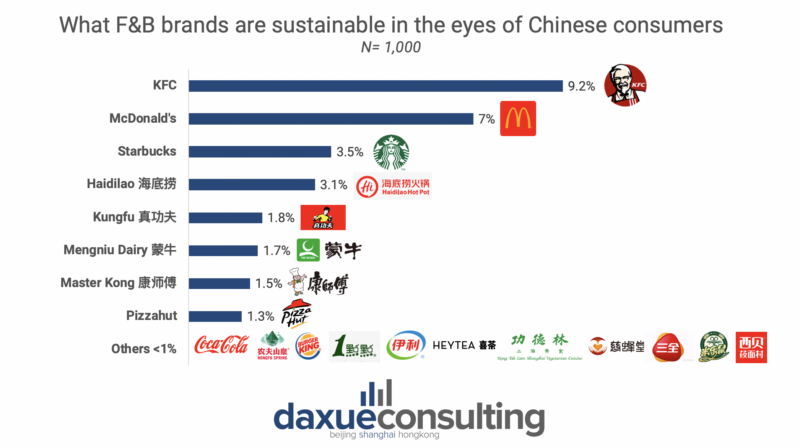
So, is KFC being recognized as ‘sustainable’ a PR miracle or reality?
KFC’s success in China: No longer a fast food restaurant
In recent years, accelerated by the Covid-19 outbreak, Chinese consumers are making more sustainable consumptions, as 53.8% of respondents in a Chinese survey stated that their main motivation for choosing environmentally friendly products is ‘caring about the world’ and ‘making both the environment and society better through individual actions’. Chinese people are also growing increasingly health-conscious; as McKinsey noted 60% of Chinese consumers say that they check ingredient labels for packaged food. Moreover, the notions of healthy food and sustainability intertwine because healthy food is often associated with clean and environmentally friendly characteristics.
KFC’s health-conscious restaurant concept
Back in 2017, Kentucky Fried Chicken launched a brand-new, healthy concept eatery – KPro, in Hangzhou, Beijing, and Shanghai. KPro features healthy food options like salad, salmon, roasted chicken, and sandwiches. This refreshing approach targets China’s “burgeoning population of urban professionals”, according to Joey Wat, the president of Yum China (KFC’s parent company).
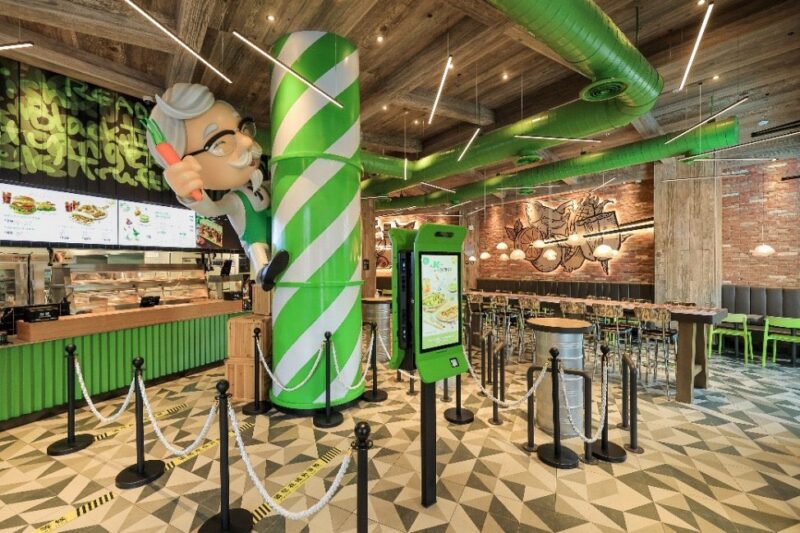
Vegan options at KFC in China
In April 2020, KFC launched its first plant-based chicken nuggets for a test trial in three of its major cities: Shanghai, Guangzhou, and Shenzhen. Chinese consumers received the launch with enthusiasm – the presale coupons sold out within one hour of its launch. Later in June, KFC a partnered with Beyond Meat to introduce the Beyond Meat burger. In September 2021, it also partnered with Oatly and introduced vegan soft serves. The vegan additions in the menu indicate KFC China’s decision to grow as a sustainable business.
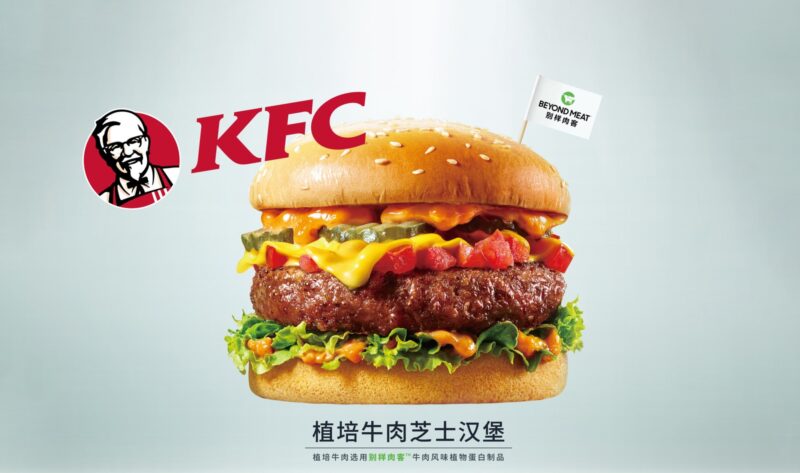
KFC: “Be Natural, Be You”
In January 2021, KFC launched a Plastic Reduction Initiative called “Be Natural, Be You”. The campaign replaced existing plastic packaging with paper straws, paper bags, and biodegradable plastic bags in line with the latest regulations in China. The National Development and Reform Commission addressed the country’s plastic waste issue in January 2020, calling the nation to join the plastic reduction campaign.

Although KFC’s campaign initially sparked some controversy, as some Netizens complained about paper straws having “papery taste”, or being too easily dissolved in liquids, the sustainable movement KFC in China has introduced is generally perceived positively.
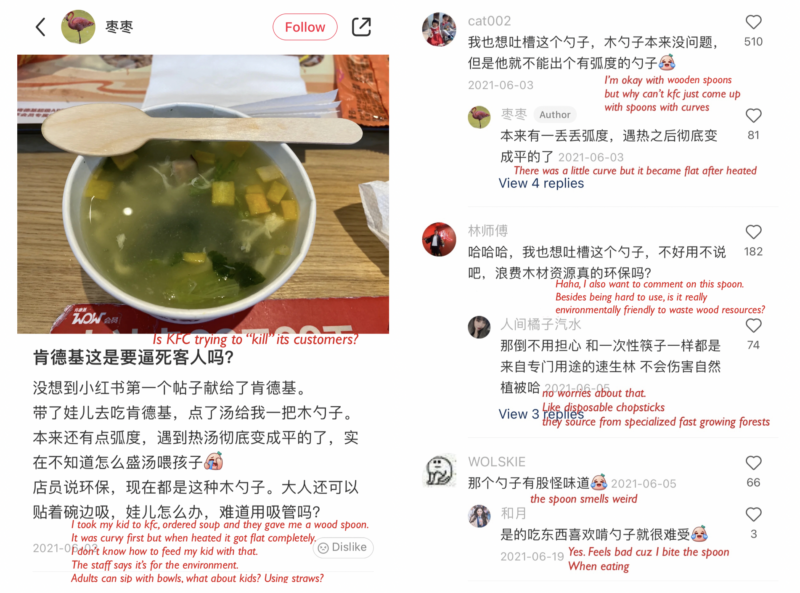
KFC’s Super APP: when being environmentally friendly earns rewards
To increase consumer awareness in sustainability, KFC also launched an interactive section in its Super App, which addresses topics such as “Exploring Carbon Reduction” and “The Journey to Carbon Neutrality”. Moreover, the franchise inaugurated a green rewards program that incentivizes mobile ordering, cutting the use of disposable cutlery, reducing food waste, and encouraging waste sorting. When consumers record these behaviors on the app, they earn reward points which can be exchanged for coupons. During the three-week campaign period, more than 28 million KFC members completed over 63 million Super App check-ins and carbon reduction actions, leading to a total carbon reduction of 145 tons of Carbon Dioxide Equivalent (CO2e). KFC, and its parent company Yum China, have taken an active stance on environmental protection.
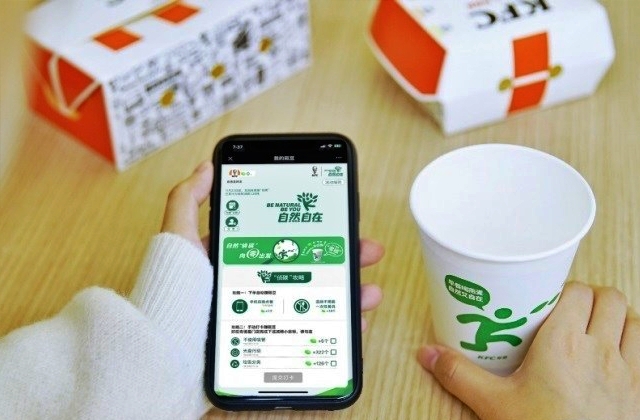
What does sustainable consumption mean to Chinese Consumers?
Despite the increase in health-consciousness and concern about the environment, sustainability still remains a nascent driver for consumption in China. According to the survey conducted by TSI, although 52% of Chinese people say they are influenced by the environmental record of a company, sustainability is still positioned at the bottom of purchasing drivers. Factors such as quality, taste, and safety remain most critical for purchase conversions. Cost is one of the top barriers to adoption: Chinese consumers are largely frugal and unwilling to pay for premium, sustainable brands in reality. In addition, health foods are often perceived as less flavorful in China, resulting in hesitancy when Chinese consumers consider a purchase.
In contrast to the Western world where sustainability is a mature concept in marketing and consumption, sustainability is often not as clearly understood and communicated by Chinese consumers. Chinese consumers find it difficult to resonate with themes like “fair wages”, “female empowerment”, or “fair-trade products”, some of the most common sustainability topics. Our survey also suggests a significant knowledge gap between Chinese people’s understanding of waste sorting (an extensively propagandized topic by the government) and the less advocated topics such as “fair trade” and “bio-based products”.
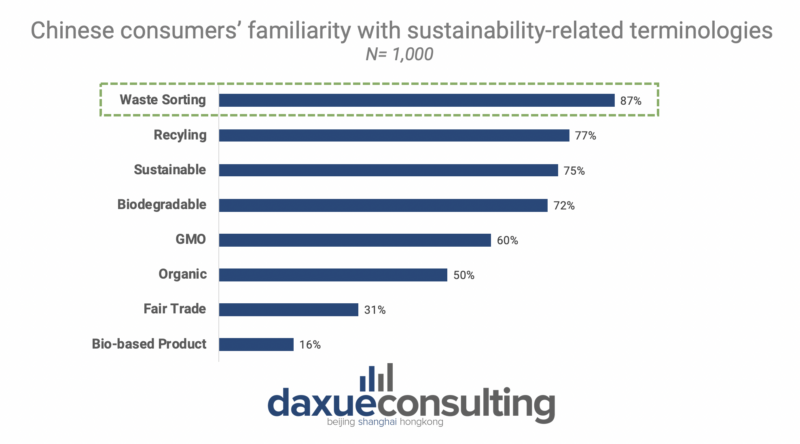
In general, consumers are more interested in sustainable-related themes that suggest direct benefits to themselves, such as healthy ingredients and environmental protection. Dairy milk is considered to be one of the healthiest food options for Chinese people due to its nutrition and perceived benefit of improving the immune system, despite the fact that the global dairy sector contributes up to 2.7% share of global GHG emissions and 2.2% is only from milk production. In comparison, the market for plant-based milk is surging in the West, reaching a net sale of USD 2.5 billion in the U.S. in 2020. This indicates that sustainability is still a relatively new and loosely defined concept for Chinese consumers and faces many obstacles in adoption and conversion.
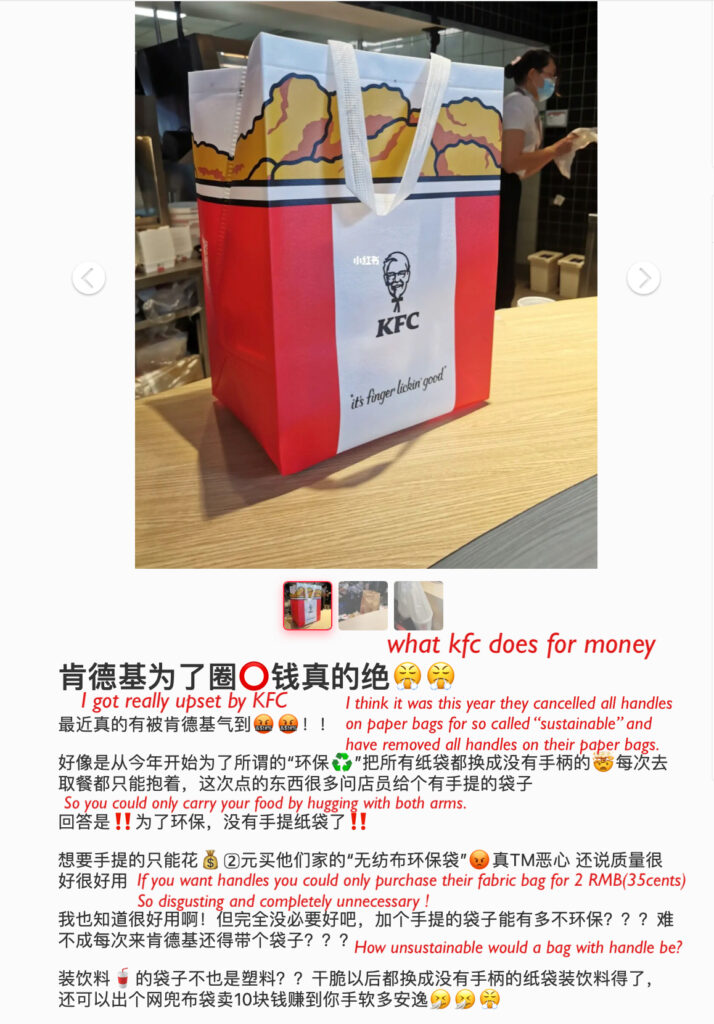
Smart Sustainability in China
In a nutshell, it’s not a miracle that “sustainable” was added to the brand image of KFC in China. Overall, KFC is, in fact, determined to transition into a socially responsible F&B company and has communicated smartly to its consumers. The sustainability campaigns of KFC in the Middle Kingdom are relevant, tangible, and rewarding.
Moving forward, more companies may learn from KFC’s success in China to inform and educate Chinese consumers about sustainability. When advocating for sustainability, brands will need to make sure that their campaigns align with local needs and interests. In this case, Chinese consumers are looking for a “win-win” situation in sustainable consumption.
Key takeaway of KFC’s success in China
- Sustainability is a rising trend in China and has been propagandized by the government, thus an increasing number of brands are acting for the environment.
- Through menu glocalization, launching healthy dining stores, and creative campaigns, KFC succeeded in the country by integrating “sustainability” to its brand image.
- Sustainability is still a nascent conversion factor for Chinese consumers, who value quality, taste, and price over a product’s environmental values.
- KFC’s campaigns in China are successful as they are accessible, user-friendly, and create benefits for the consumers; as a result, these campaigns were a “win-win” situation for both the brand and its consumers.
- Chinese consumers are more interested in sustainable actions that generate direct benefits to themselves, likewise, a knowledge gap still exists in identifying some sustainable topics.
Author: Katherine Gao



